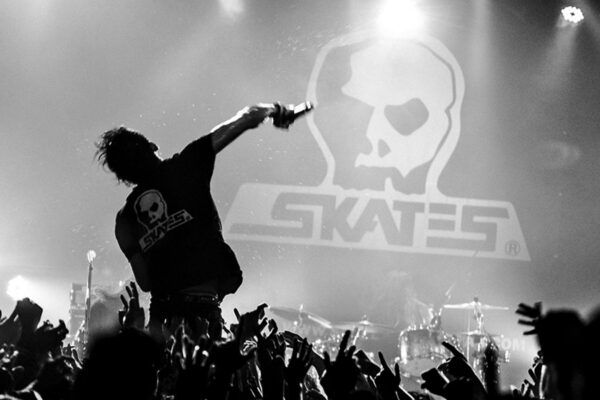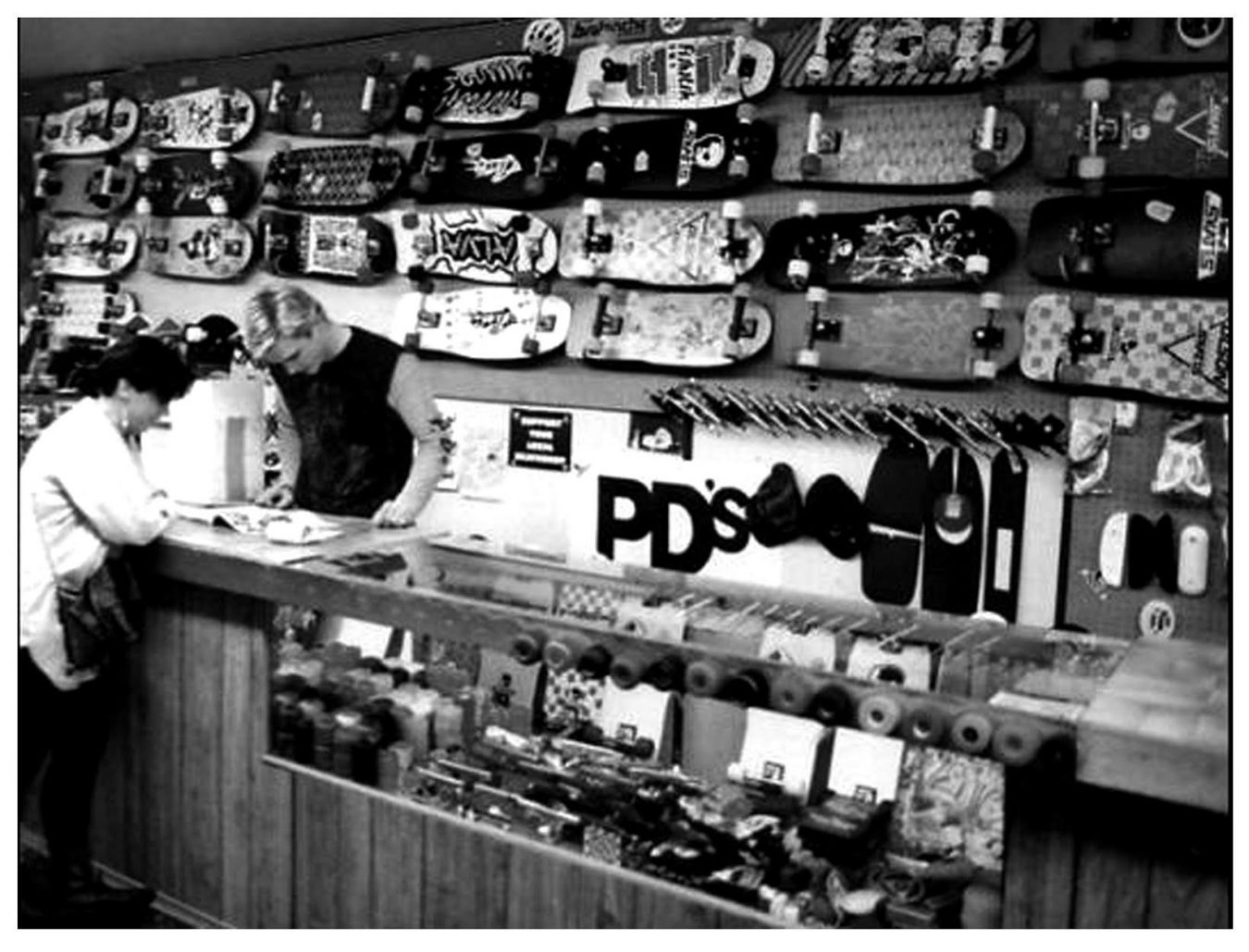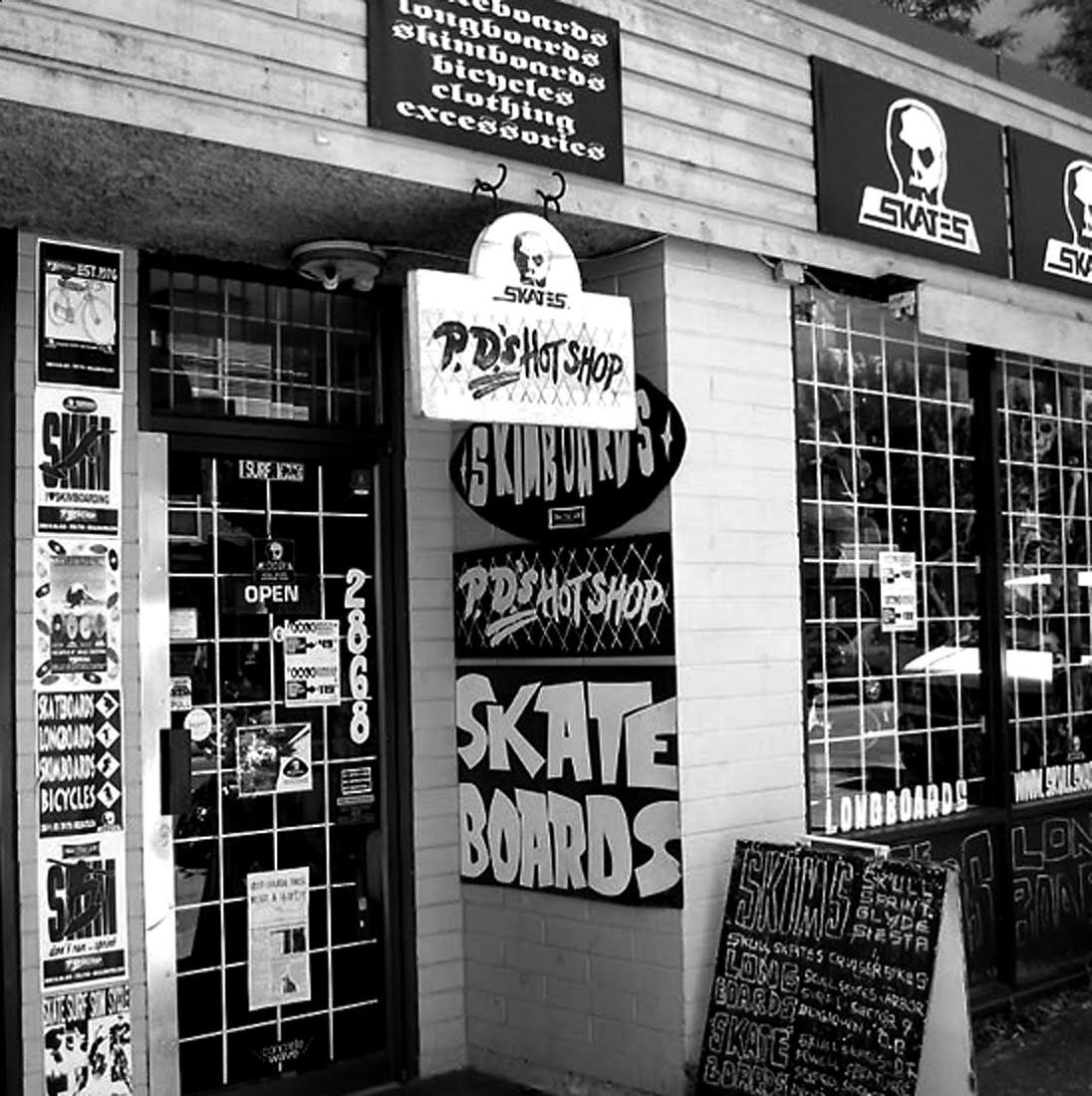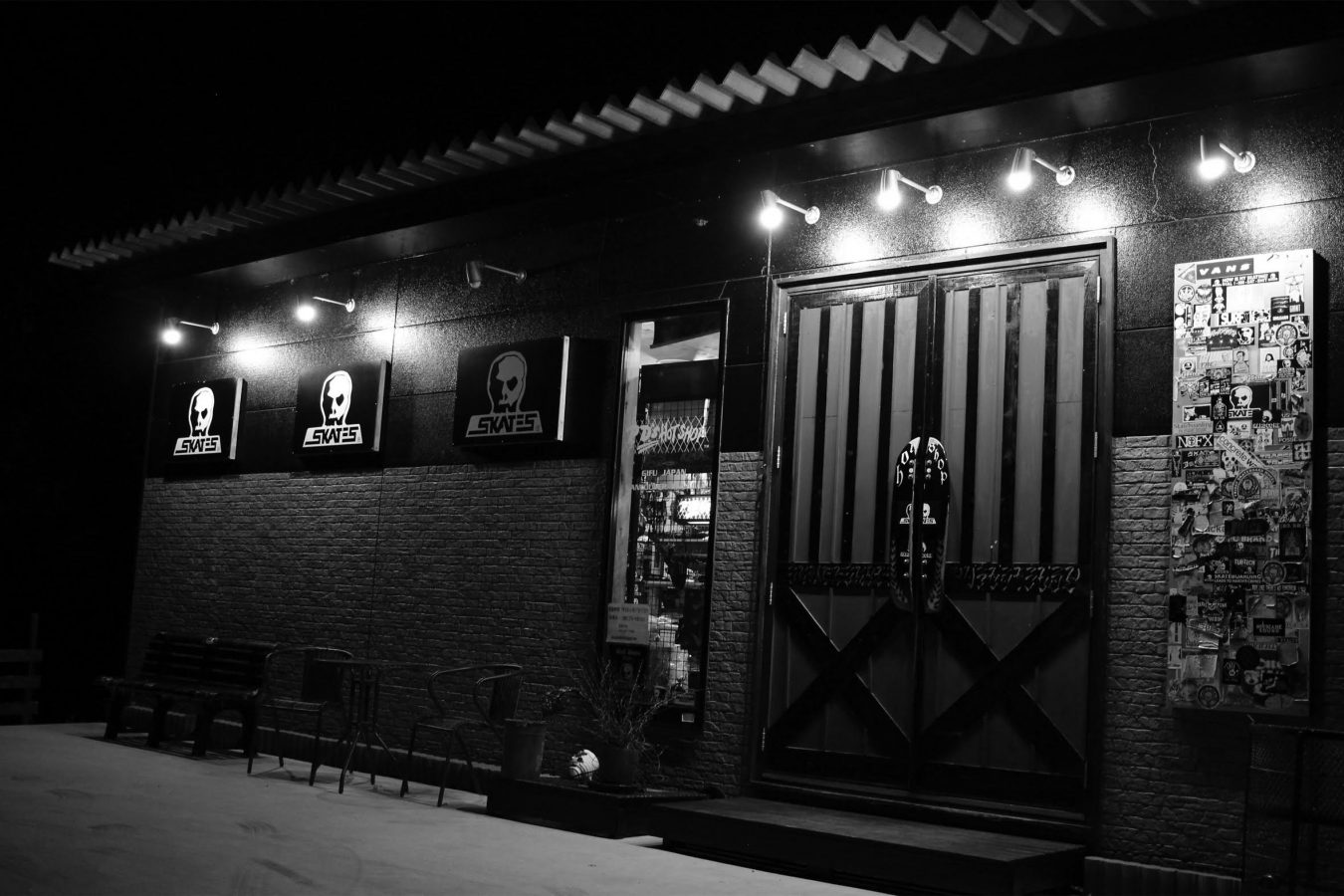It was humble beginnings for Peter Ducommun, better known as P.D., who started out sourcing materials for skateboards from lumberyard scraps in Nanaimo. Fast-forward to today, and his business—P.D.’s Hot Shop, currently located at 3734 West 10th Avenue in Vancouver—is considered Canada’s longest-running skate store.
Tucked away in Point Grey, the shop’s quiet presence is a nod to Ducommun’s concerted effort to remain slightly under the radar. But stacked with a trove of in-demand skate goods—mostly edgy black-and-white basics (skateboards, snowboards, skimboards, bicycles, and clothing) by in-house brand Skull Skates—the shop attracts a steady stream of locals and out-of-towners alike. With good timing, visitors can spot Ducommun, a man with skateboarding street cred to spare and the war wounds to prove it: a metal plate at his left ankle and a knee-to-ankle pipe on his right.
Ducommun’s older brother Rick first introduced him to skateboarding, and ultimately, to the business behind the sport. Rick was in and out of Los Angeles with a t-shirt company at the time, and would fulfill Ducommun’s request list of skate items that were hard to find on Vancouver Island. This evolved to a mail order catalogue run out of Ducommun’s bedroom in 1976, and soon after, the brothers’ storefront in Vancouver. That is when Ducommun convinced his parents to let him quit school in Grade 11. “I arranged a meeting with my counsellor and my parents,” he remembers. “I had this big pitch about how I’m not learning anything at school and how I’m learning so much in business. And my dad stood up and said, ‘I guess we’re done here.’” That was the end of Ducommun’s high school career and the beginning of P.D’s Hot Shop.
The name for the Vancouver shop came easily—at least to Rick. “He thought I had a certain amount of notoriety that we should capitalize on,” explains Ducommun. Soon enough, the idea that they could make a better skateboard than what was currently on the market led to the in-house brand Skull Skates in ’78—the logo adapted from a jagged skull that Ducommun had carved out of grip tape on his board. Originally dubbed Great North Country Skateboards (to convey that it was Canadian skateboarding) then shortened to GNC Skates, the line was later renamed due to the number of orders addressed to Skull Skates. “Basically,” recalls Ducommun, “our customers renamed the company for us.”

Oak and 67th was their first significant location. “If you wanted this cool stuff, but you just couldn’t get it anywhere else, you had to come to us,” Ducommun says. And it was more than just a place to sell gear. “We became this place where people met and ideas were exchanged. It was a special place for a lot of people,” he continues. “It was also a place where we developed our technique: if you’re nice to us, we’ll bend over backwards; but if you’re a jerk, you’ll get kicked out of the store.”
The brothers took on Los Angeles in 1983, while retaining their Vancouver retail presence (though the shop did move locations). L.A. was the centre of the skateboarding universe. If you wanted to expand, you needed a Southern California outlet to be taken seriously. Promotional opportunities were aplenty, and Skull Skates provided boards to punk bands, including the likes of the Red Hot Chilli Peppers and Social Distortion. In SoCal, the brothers cemented their place in the skate world.
The Melrose shop generated strong traffic and cool contacts, but business stalled toward the end of the ‘80s. New Southern California brands were leading the scene, and the older brands were taking a beating. “It was a lot of revving in neutral,” says Ducommun. “Not a lot of money being made.” It seemed like the right time for him to return home to Vancouver (Rick stayed in L.A.)—but with a new mindset. “[L.A.] helped inform how I run my business to this day,” Ducommun asserts. “You don’t say yes to every opportunity that comes to you—it has to be good for you.”
One opportunity that he later agreed to was a Skull Skates shop in Japan. Launched in 1994 by skater Satoshi Ono, the store is a four-hour drive from Tokyo and opens at 8 p.m. “I remember the first time going there thinking, ‘This is weird. It’s total countryside and not even light out.’ Before you know it, it’s midnight, and all these kids arrive and put piles of shit on the counter. Then they’re all hanging out ‘til 1 or 2 in the morning,” says Ducommun. “It’s very much Skull Skates—but it’s a Japanese version.”
The secret to Ducommun’s long-standing success? Dedication. “Part of the skateboarding [culture] is you almost want more allies. You become really passionate about it, and it’s sort of your life. You want to introduce more people,” he says. “Yeah, we want to sell you some crap; but more than that, we want you to be on our side. We want to make you into a skateboarder.”
Meet more of Vancouver’s Community.











